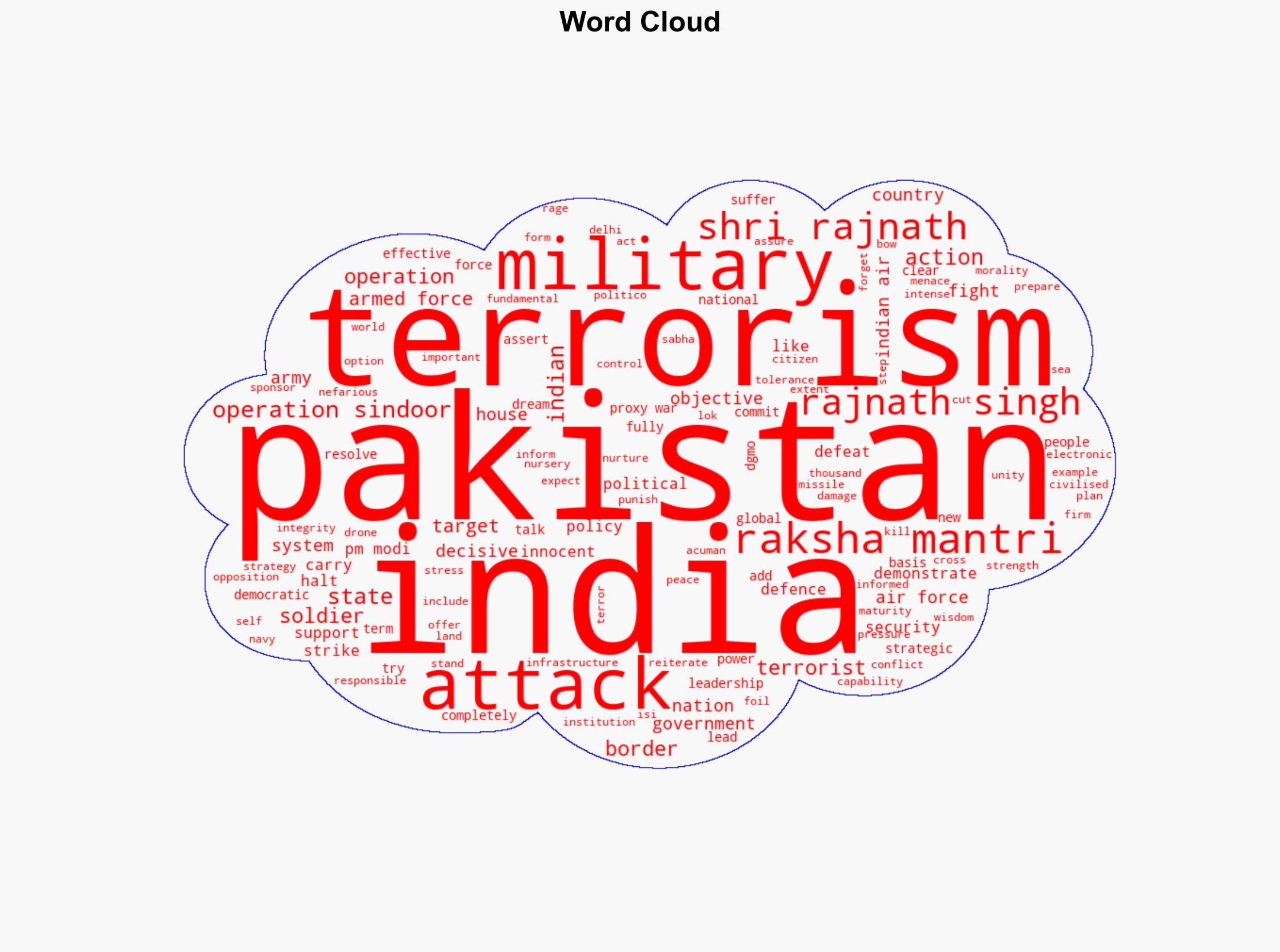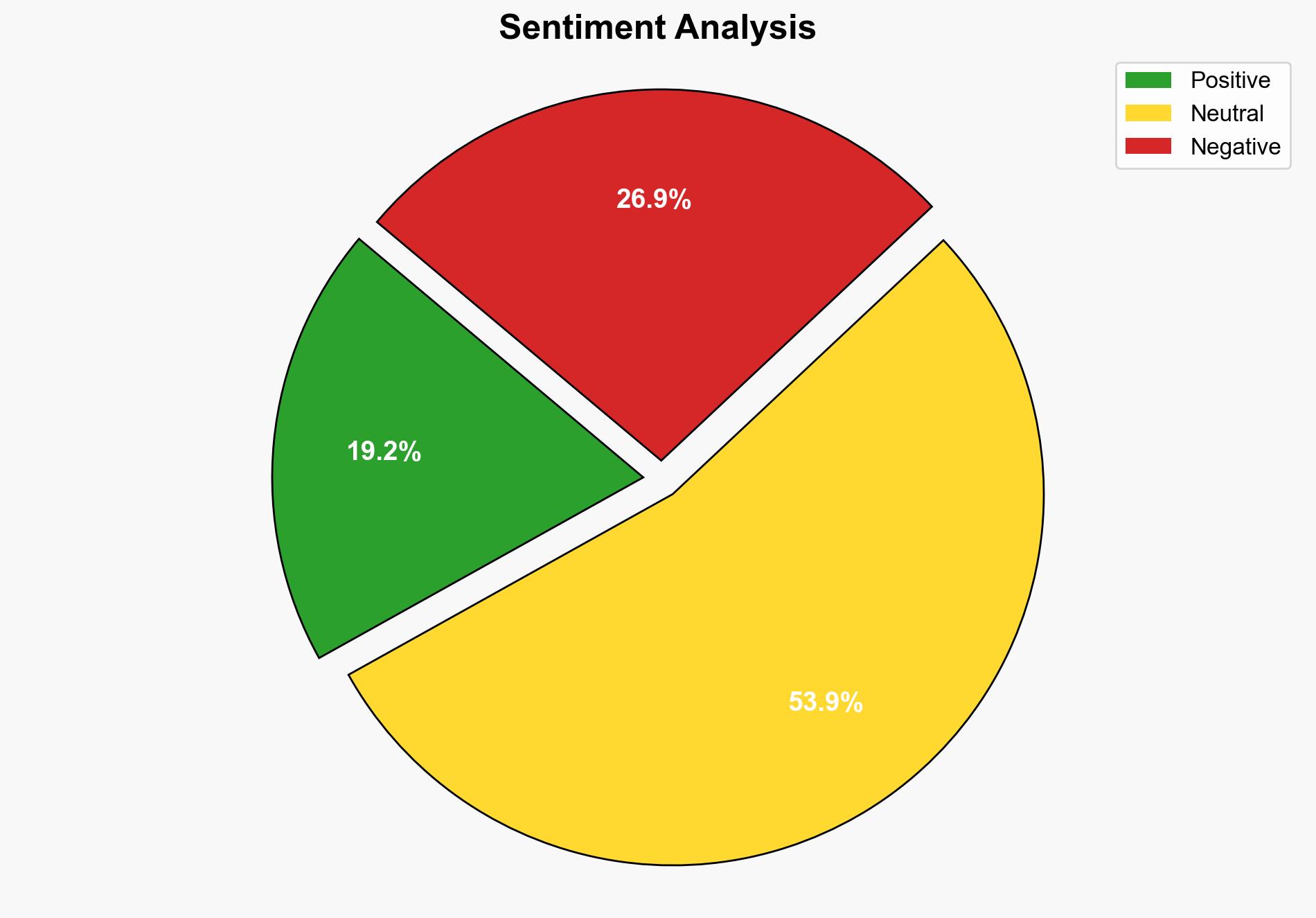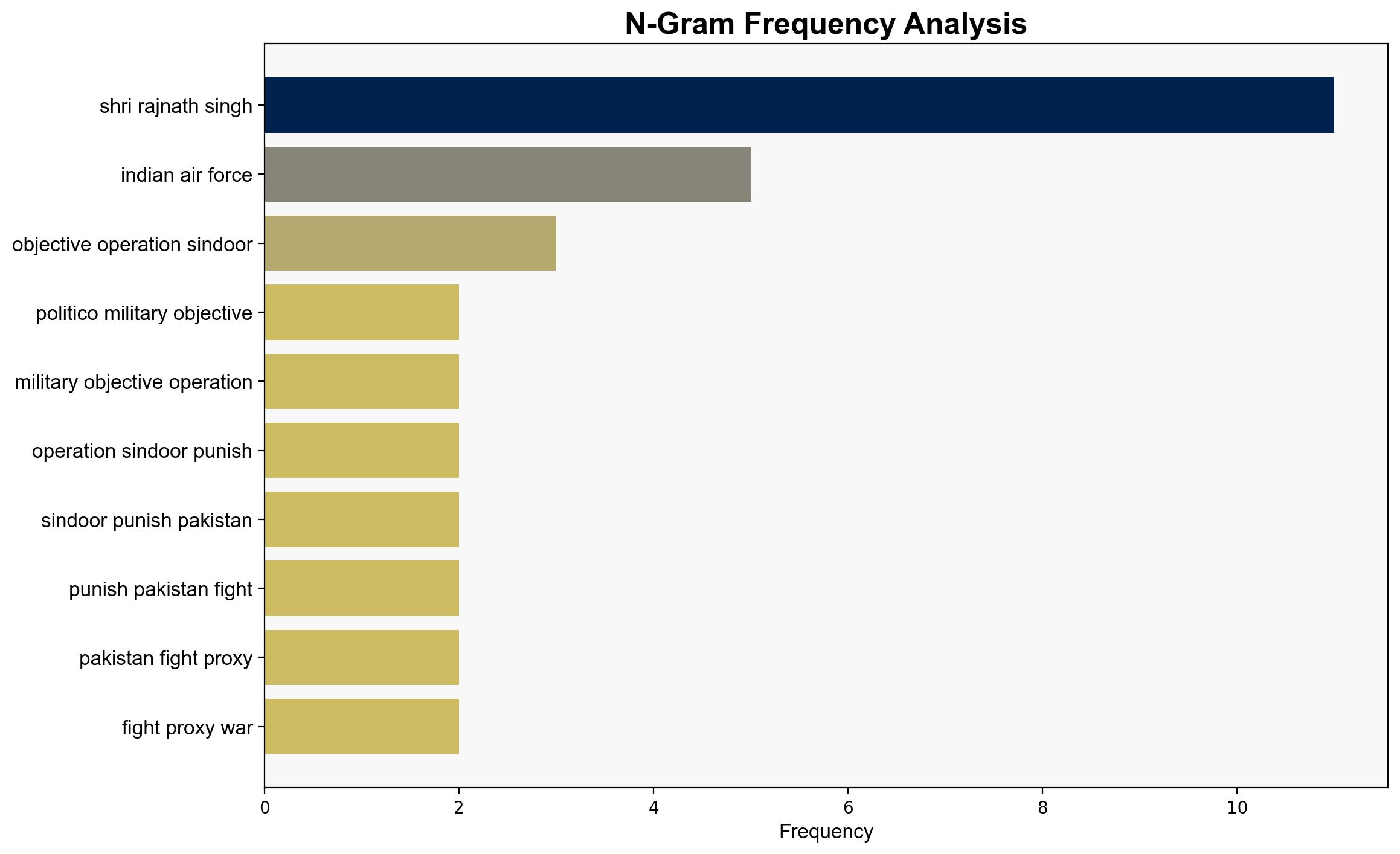Overall politico-military objective of Operation Sindoor was to punish Pakistan for fighting a proxy war Pak-sponsored terrorism is a well-planned strategy fundamental rage Raksha Mantri in Lok Sabha – Globalsecurity.org
Published on: 2025-07-29
Intelligence Report: Overall politico-military objective of Operation Sindoor was to punish Pakistan for fighting a proxy war Pak-sponsored terrorism is a well-planned strategy fundamental rage Raksha Mantri in Lok Sabha – Globalsecurity.org
1. BLUF (Bottom Line Up Front)
The most supported hypothesis is that Operation Sindoor was a strategic demonstration of India’s military capability aimed at deterring future acts of terrorism by Pakistan. Confidence level: Moderate. Recommended action: Enhance diplomatic efforts to reduce tensions while maintaining military readiness.
2. Competing Hypotheses
1. **Hypothesis A:** Operation Sindoor was primarily a punitive measure designed to retaliate against Pakistan for its support of terrorism, aiming to inflict significant damage on terrorist infrastructure and demonstrate India’s military prowess.
2. **Hypothesis B:** Operation Sindoor was a strategic maneuver to bolster domestic political support by showcasing a strong stance against terrorism, with the primary goal of reinforcing national unity and political leadership rather than purely military objectives.
Using Analysis of Competing Hypotheses (ACH), Hypothesis A is better supported due to the emphasis on military capability and strategic deterrence in the source text. Hypothesis B, while plausible, lacks direct evidence in the text regarding domestic political motivations.
3. Key Assumptions and Red Flags
– **Assumptions:**
– India’s military actions are solely defensive and not expansionist.
– Pakistan’s involvement in terrorism is systematic and state-supported.
– **Red Flags:**
– Potential bias in the narrative framing Pakistan as the sole aggressor.
– Lack of independent verification of the claimed success and impact of Operation Sindoor.
4. Implications and Strategic Risks
– **Implications:**
– Potential escalation of military tensions between India and Pakistan.
– Increased regional instability affecting South Asian geopolitics.
– **Strategic Risks:**
– Economic repercussions due to heightened military expenditures.
– Risk of cyber retaliation or asymmetric warfare tactics by non-state actors.
5. Recommendations and Outlook
- Enhance intelligence-sharing with international partners to validate claims and counter misinformation.
- Engage in back-channel diplomacy to de-escalate tensions while preparing for potential retaliatory actions.
- Scenario Projections:
- Best Case: Diplomatic resolution leads to reduced hostilities and improved bilateral relations.
- Worst Case: Escalation into broader military conflict with significant regional impact.
- Most Likely: Continued low-intensity conflict with sporadic military engagements.
6. Key Individuals and Entities
– Shri Rajnath Singh
– Prime Minister Narendra Modi
– Jaish-e-Mohammed, Lashkar-e-Taiba, Hizbul Mujahideen
7. Thematic Tags
national security threats, cybersecurity, counter-terrorism, regional focus





